In Loaves and Wishes, Antonia Trill wrote about the ‘act of providing’ sometimes being the only kind of power women are permitted to employ. After several years of living in Bengaluru, a chance conversation led me into the world of three extraordinary Cutchi Memnon women. They belong to a mercantile community that migrated from Kutch, in western India, and settled in various southern cities. In Bengaluru you are likely to hear about many prominent and successful members of the Cutchi Memon community, famous for their business acumen, such as the self-made millionaire philanthropist, Hajee Sir Ismail Sait, whose many contributions to healthcare and education are landmarks of the cityscape. The lives of women remain hidden.
Noor Sait, a businessman and bookseller, ran an iconic bookstore in partnership with his brothers, now sadly closed, which I visited almost every week. Their frequent descriptions of home cooked Cutchi Memon food were intriguing, and one Sunday afternoon, a large vessel, still hot from the oven, swaddled in white muslin turned up in my kitchen. Inside was a pale, silky biryani, the chunks of mutton plump, soft, flavourful, with barely a hint of spice —it was nothing like what I had eaten before. Studded with wedges of potato, it came with a pleasingly tart, intense dish of baghare baingan in a thick gravy. The food was made by Abida Qasim, who runs a catering business specializing in Cutchi Memon home cooking. The flavours were light, delicate and distinctive, and I was curious to learn more. A few introductions led me to three homes where women had established their reputations as outstanding cooks, caterers, and repositories of food traditions. What emerged were highly individual portraits of three women, their lives shaped and transformed by the food they cooked.
Anisa Farooq is elegant, poised and articulate. She states firmly that Cutchi Memon food cannot be found away from family tables. She elaborates on their food traditions with the ease of someone both familiar with the everyday practicalities and passionate about the nuances of cooking. “The key to our cuisine lies in the techniques of bhuno and dum,” says Anisa, “in the patient slow roasting and frying of spice mixtures and the long drawn out process of steam cooking, or dum, which seals in the flavours that would otherwise be lost.”
Cutchi Memons are very sparing in their use of spices and that exceptional biryani we had grown to love uses the smallest sprinkling of whole spices and no turmeric. It relies on the marinating and parboiling of the meat for perfect doneness, and those shiny potatoes are steamed in the stock from the cooked mutton. “Onions,” says Anisa, “rather than spices, turn up very often in our cooking. They are often fried and stored, so that we can produce a meal at short notice by simply crushing a handful into a dish to add instant depth and richness.”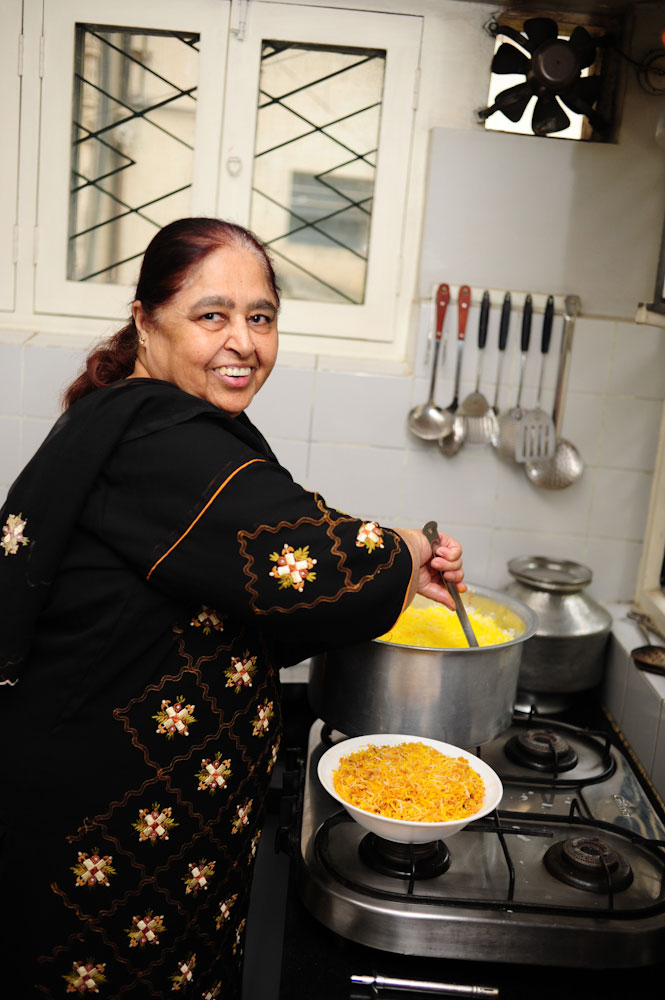
It’s difficult to imagine that the woman speaking with such authority was married at sixteen, absolutely detested onions and did not know how to cook. She would watch her mother-in-law with trepidation while food was being cooked for the household, hoping that she would not be required to handle anything too elaborate. She took her mother-in-law’s instructions seriously, though — ‘the eyes should see, and the hands should do’. One day, faced with a domestic crisis, she summoned up all her courage, recalled what she had observed, and plunged into cooking for the family, winning her father-in law’s approval and gaining the self-confidence she needed to hold her own with the formidable lady who ruled the kitchen and the home. She speaks like the expert she is now— about kormas, khushkas and the much sought after mutkulas – the elaborate rice and vegetable dumplings made into a thick stew, and served with fried fish at the haldi ceremonies at weddings. Warqui samosas, thin, layered and filled exquisitely with minced mutton; khichda, a stew of broken wheat, lentils and vegetables; paya, a soul satisfying soup of trotters, slow cooked, and very subtly flavoured with just a few spices and zarda, a rice sweet cooked with milk, saffron cashew nuts and cardamom —all these traditional classics are part of her repertoire. One dish, however is special. Anisa is animated as she explains that her rote cake —a baked semolina sweet —is so good that the recipe has travelled the world with young girls and expatriate Cutchi Memon families. Onions and rote cake seem such small things. But they are markers of a remarkable journey in food for Anisa, from a tentative sixteen-year old, to an assured and capable home cook. There are vast acres of unspoken words, which we have to listen to, and work out for ourselves the choices that a woman who has carved out an independent space for herself within the complex, closed hierarchy of an extended family made, slowly, over the years.
Abida Qasim, the creator of the remarkable biryani that first caught my attention, smiles as she says: “I wanted to work, but I was married very young, with no extended family to rely on. There was no question of working outside of the home”. Refusing to be defeated by custom, Abida turned to what she could do best —cook —although at the time she did not have the skills she needed. Over long telephone conversations with her mother, she, began to re-create the fabulous meals she had eaten as a girl, dishes that had been cooked time and time again in her community, dishes that defined in many ways both her, and all the women before her. She describes working around the needs and routine of her family, growing her business steadily. Her conversation is filled with a warmth and humour that hide the long hours and difficult times she faced, turning food into a career when no other options were at hand. Cutchi Memon food is rarely found outside homes, so not surprisingly, Abida’s cooking quickly became very popular. Every day, she would send out massive vessels of silky mutton biryani studded with wedges of potato, the mouth of the vessel swathed in muslin. Her warqui samosas became so famous, people fought amongst themselves over who placed orders for them, since they were made in limited quantities. I am not sure if Abida would qualify as a professional chef by any of the parameters commonly used to describe one, but to understand the unique space she has created, I fall back on Antonia Trill again when she wrote that — “even for liberated women the kitchen can be a place of power as well as of warmth and nurturing, and is often, unofficially, her office and administrative centre”. Abida’s particular genius lay in drawing on the same tradition that bound her, to find her space, her voice —and her freedom. With everyone having left home now, Abida revels in her independence as she runs her business, adding, quite simply, “I wish that I could do this for all my days.”
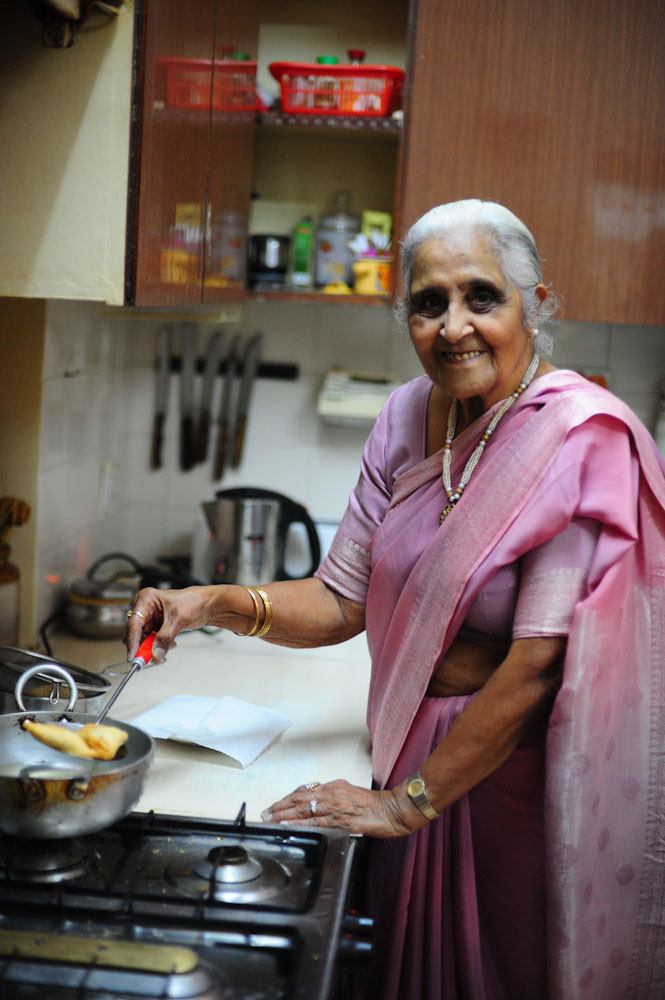
Hajra Mohamed, eighty-seven years old, has just prepared lunch for us. She fries warqui samosas, inviting me to watch how the wafer-thin layers of flaky pastry unfold in the oil. Airy pastry gives way with a crunch to a filling of minced, lightly spiced mutton. An elegant prawn biryani is served with fresh raita, and a bowlful of rich bhaghare baingan. There’s an array of homemade pickles and most tender teen masala chops, vegetables and kheer to finish. The recipes for all these dishes feature in her cookbook, Hajra’s Recipes of Life, for Life, a book which has led me here. Published in 2010 when Hajra was 85, with a little help from Husna Rehman, her granddaughter, she packed a lifetime’s skill and experience into documenting Cutchi Memon food and making it accessible to anyone who was interested.
Dressed in an elegant, brocaded silk sari in a shade of old rose, with beautiful antique jewellery, Hajra plies me with food while she talks about her life in cooking. “What good are family recipes if only the family knows about them? Good food is God’s gift and must be shared with everyone.” The book, for which she won a World Gourmand Award, has recipes handed down from Hajra’s Hyderabadi mother who taught her how to cook. It is designed around a series of menus rather than a table of contents, and reflects a lifetime of cooking with love for her three children. Full of comments and amusing asides, space for notes, and clear instructions, it covers a range of food grouped in typical combinations. The back cover has words from a famous political figure, movie stars and sportspersons.
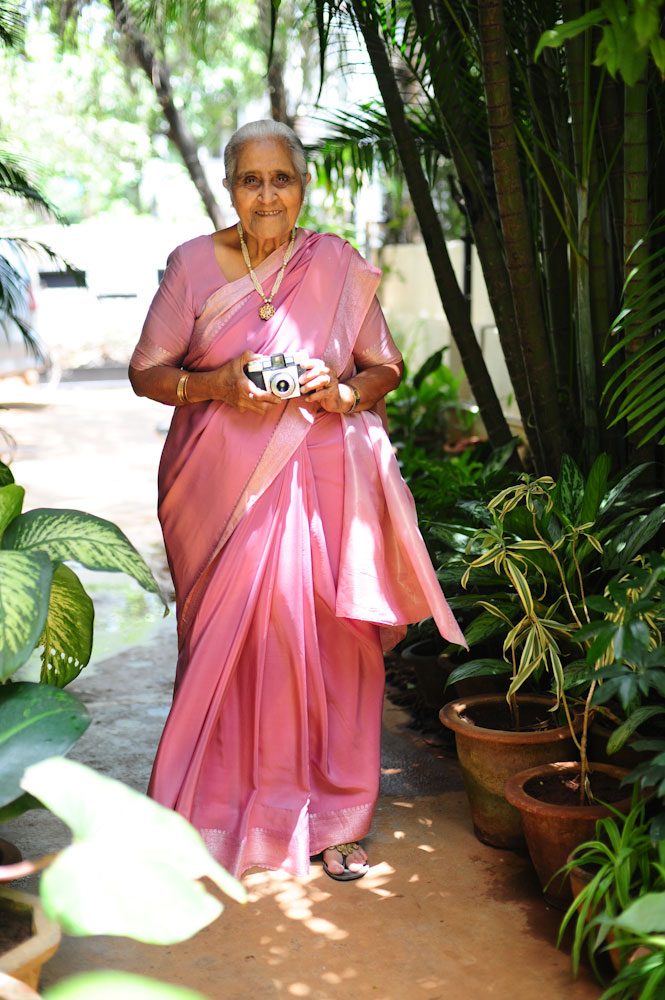
“We are well-known for our extended brunches, as we tend to begin our day very late,” says Hajra “and there are a number of single dishes that are meals in themselves, you must try and make them.” There is no hint on these pages of the struggles of the young Hajra, an adored only daughter in a family of seven brothers, who never entered the kitchen, played the piano, rode a bicycle and dreamed of becoming a doctor, only to have to give up her education when her father died unexpectedly. More tragedy followed. “My husband died suddenly, when I was in my thirties. I was alone. I had three children to bring up single-handed, no qualifications, or finances. So, I held cooking and baking classes at home,” she says, quietly “and made and sold handmade dolls to a handicraft emporium.” She smiles, finally, and adds, “I urged my children to embrace life fearlessly.” On the pages of her book, her notes are filled with a remarkable generosity of spirit, and when she remarks that this food was ‘fed with a heart full of love’, it is just as she says.
Her enthusiasm for all that life has to offer is irrepressible — she has demonstrated Cutchi Memon cooking at the Bangalore Club, still loves the movies and she carries around in her bag a small Canon camera, and takes photographs wherever she can. She makes us pose, and shoots quickly, to keep a record of the visit —and all the while, she shares stories from her extraordinary life, filled with courage, generosity and a spirit of adventure. She keeps in touch with her family on her I-Pad, and has a Facebook page to answer queries about her recipes. When I left, she was planning to ask her granddaughter to take her to photography classes, and I have no doubt that she will do just that. “Prepare to be generous with your quantities”, she says in her recipes. It’s the way she meets life. Patriarchies; personal and economic freedoms; economic hardship and loneliness all negotiated with khushkas, mutkulas, warqui samosas and biryanis.
By: Kaveri Ponnapa
Images Courtesy: Nithin Sagi
A shorter version of this article appeared in UpperCrust Magazine.
Harja Mohammed passed away in April 2018.

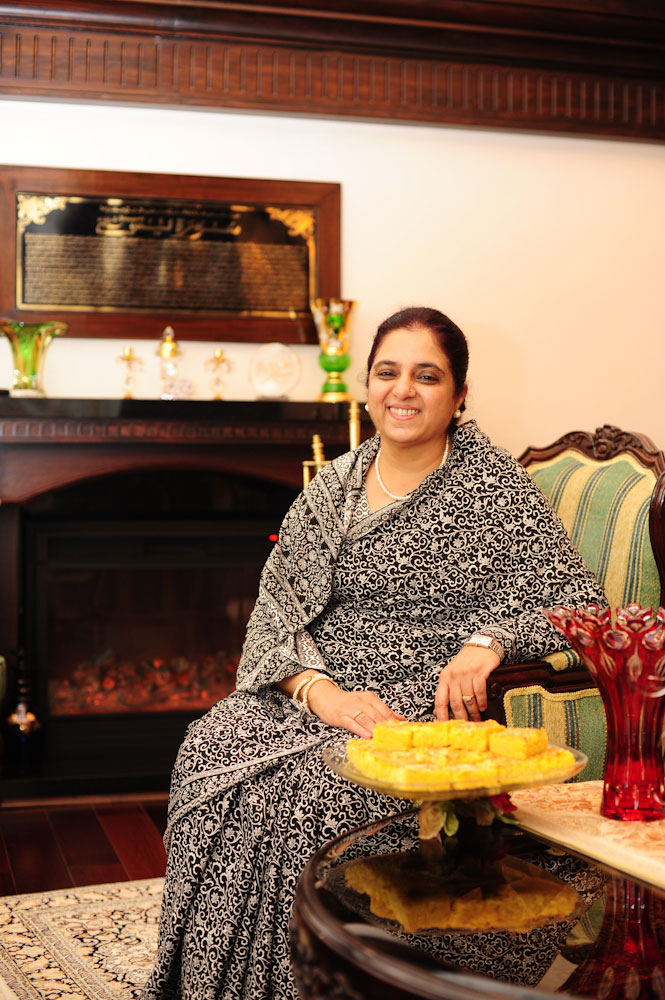
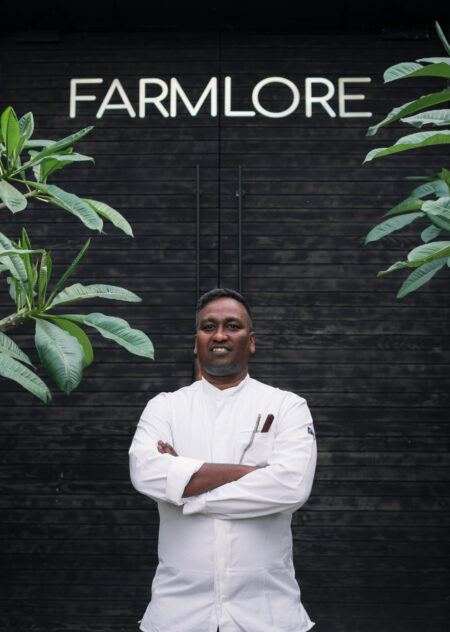
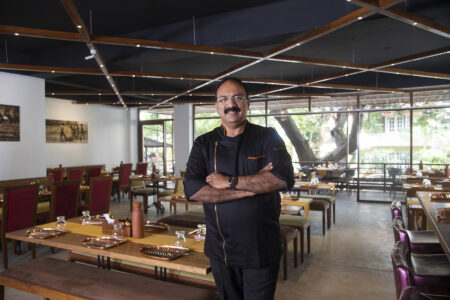
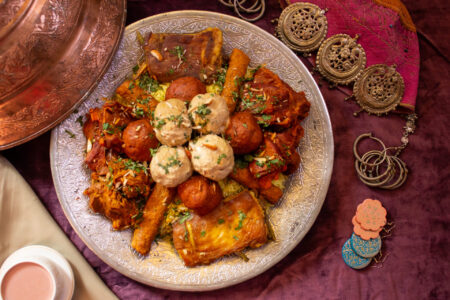
Delightful narration of interesting lives – thank you so much. Absolute education about Cutchi Memons in Bangalore.